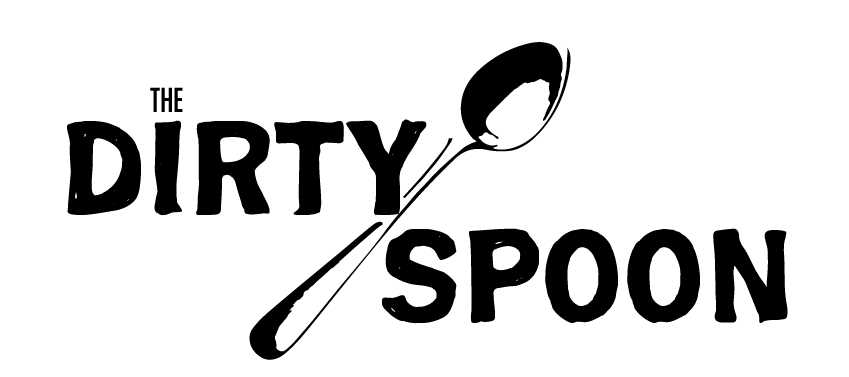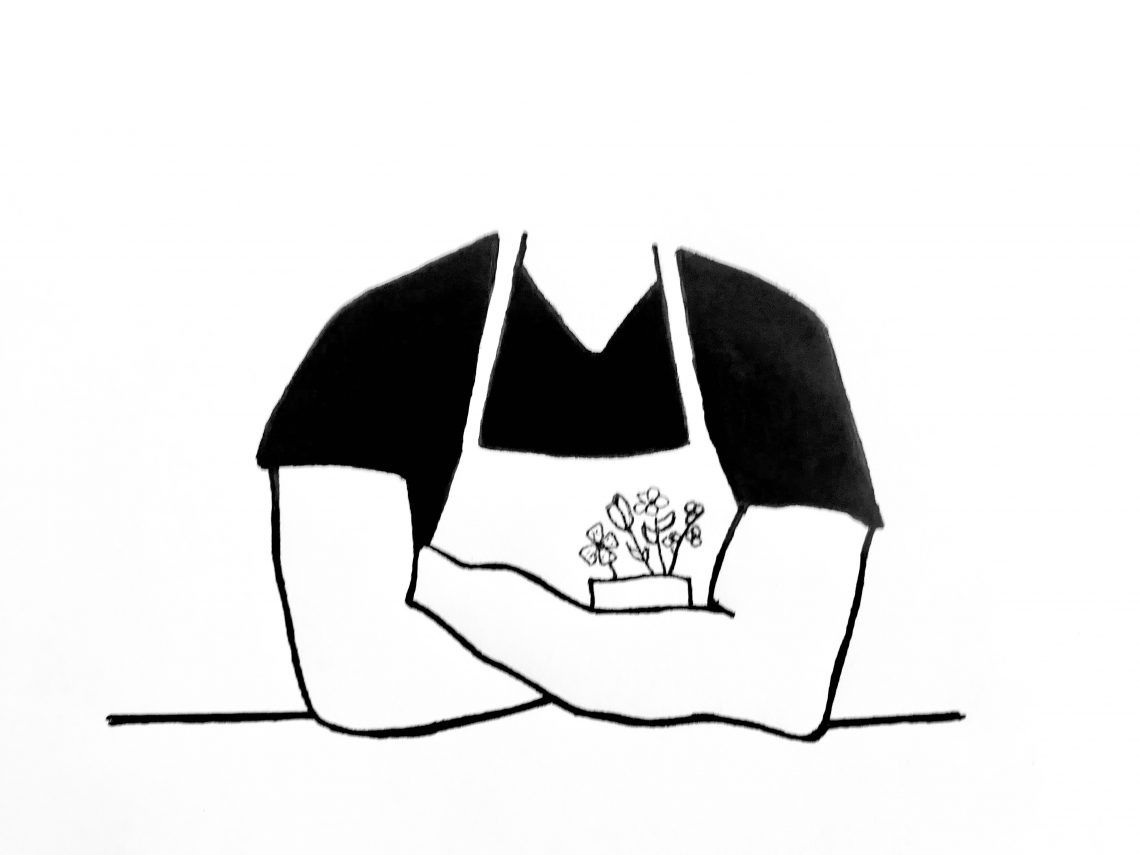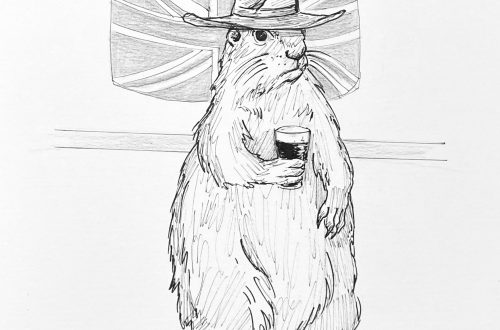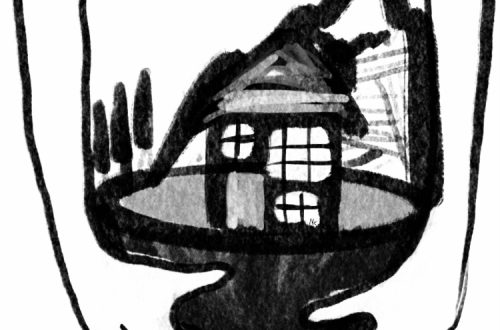by Andy Winder
Andy’s essay, “Next Course,” appeared in Episode 15 of The Dirty Spoon Radio Hour, which aired on October 4, 2019. Listen here:
I’ve finally reached the boring adult milestone where the happiest part of this month was buying myself a blender.
That’s not to say I’ve had a rough time lately.
The idea of making caffeinated smoothies for breakfast thrills me–and the strawberry basil smoothie I made this weekend can attest to that enthusiasm. It reminds me of how far I’ve come as an amateur cook.
When I started learning to cook for myself, I attended a university that (at the time) banned the sale of caffeine on campus. Until 2017, Brigham Young University didn’t even stock their vending machines with Diet Coke. You had to buy the weird, “produced-specifically-for-Mormons” caffeine-free Diet Coke and at that stage, what’s the point?
The cafeteria wasn’t much better, especially for a shy sophomore who found the crowds overwhelming. I didn’t always fit in at BYU–and not in the loner, “no one gets me” kind of way. I wanted to belong, but my social anxiety often persuaded me that I didn’t. And on top of all that, I’d just began taking testosterone injections so I could transition to male.
We have a term for the first few years after someone starts hormone replacement therapy (HRT) in the trans community: “second puberty.”
As you can guess from the name, it’s an awkward time–your body’s changing, your mood is swinging, and once again you’re trying to answer the question: who am I, and what does it mean to be me? I grew up in a family of four sisters so I didn’t have a sibling I could ask about what it meant to be a man. But I did have my dad.
As you can guess from the name, it’s an awkward time–your body’s changing, your mood is swinging, and once again you’re trying to answer the question: who am I, and what does it mean to be me?
In many ways, my dad mirrors what you’d traditionally think of when you hear the word “masculine.” He’s devoted to the Utah Jazz and BYU football teams, even when they have bad seasons, or years, or decades. He runs his own business out of his warehouse and taught me that sometimes tough work (physically and emotionally) is necessary to take care of those you love. He loves alternative rock and hates sensitive artists like Hozier or Sam Smith with a passion that I don’t fully understand.
But he loves to cook.
As long as I can remember, he’s been the parent who makes family dinners or Sunday breakfasts–not because my mom can’t, but because he truly enjoys it. For my dad, cooking is how he shows his affection, and he’s genuinely offended if we refuse something that he made.
I never had to put up with Eggo waffles or Raisin Bran growing up because for breakfast, Dad would make blueberry pancakes with homemade syrup or egg-in-a-hole with dill and avocado. Sundays were “cinnamon roll Sundays,” and we’d return from church to enjoy cinnamon rolls that Dad had made from scratch in our bread maker.
But the best food he ever made were his authentic German dinners.
In the early nineties – shortly after the Berlin wall fell, which he had a piece of – my dad spent several years in Dresden. Even though he returned to the United States, he never lost his passion for German cuisine. He made us everything from spaetzle to goulash to breaded schnitzel and rotkohl, and all of it was delicious.
My mom likes to brag to others that in her house, she can leave the cooking to her husband. When I was a kid, I remember some of her friends thought it was odd or even funny. My mom has never cared about gender stereotypes when it comes to chores–she makes a point of mowing the lawn every weekend before my dad can stop her because it makes her feel empowered.
My mom likes to brag to others that in her house, she can leave the cooking to her husband. When I was a kid, I remember some of her friends thought it was odd or even funny.
In a simple way, my dad showed me that being a man or a woman – or a person in general – is more than adhering to social traditions. Our humanity is much deeper than that, and I think it’s the same with gender identity.
My dad cooks for us because it’s his way of caring and providing for his family. When my dad first began his business, this wasn’t always easy–some months, we couldn’t afford to keep the heat on and had to boil water for our baths.
But he made sure that his children were fed, no matter what.
Whatever “masculinity” really involves, I can’t think of anything more important than loving others in the best way you can. I guess it was fitting that I started to cook around when I chose to transition. Inadvertently, it reminded me that the overlap between “being a man” and “being a good person” is nearly complete.
One of the first dishes I learned to make for myself was rotkohl, a German side dish made from red cabbage, vinegar, sugar, and bacon. I could have chosen a more practical recipe. But, as strange as it sounds, rot kohl is one of my comfort foods. It reminds me of home.
When I cooked it for the first time, my roommate peered into the pot, scrunched up her nose, and said, “Why is it purple? I don’t think food’s supposed to be purple.”
I never gave her a satisfactory answer to that question, nor did I convince her to try it. But while it turned out a little too sour the first few times, I still felt proud of myself.
With hours of experimentation in the kitchen involving the only guinea pigs I could convince to eat my food – my partner Mac and myself – I’ve developed a knack for a few dishes. Mac loves my beef stew, and I’m particularly confident in my quesadilla-making abilities. Sometimes, if my introverted self is in the right mood, I even invite people over for meals.
When I moved into my first apartment outside of campus housing earlier in the year, I invited some friends over for brunch. These friends were fellow trans students from my time at BYU. Some of us transitioned while we were students, some of us waited until after we graduated, and some are still deciding what’s best for their situations. Without these friends, I don’t think I could have made it through my college years. Transitioning at a conservative Mormon university was hard, but having friends who empathized and lifted each other up made the difficulties worthwhile.
I’m an avid cook but definitely not a gourmet one, so I just stuck with making waffles for them.
But even though the menu was simple, I thought about my family’s breakfasts growing up and smiled. I guess that’s just what Winder men do: cook for their family.
Custom illustration by Corinne Pease.
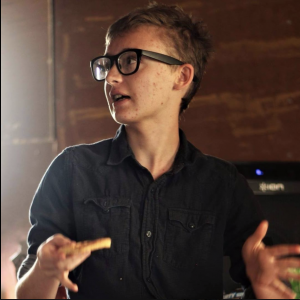
About Andy Winder
Andy Winder is a writer who currently works for an educational non-profit in Utah. In addition to writing, he enjoys spending time with his four sisters, visiting art museums, and having conversations with people about things that matter.
